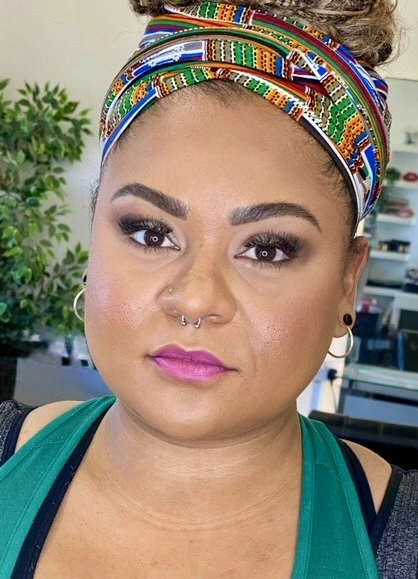
Driving change behind the gate: Psychologist Martha’s impact in prison healthcare
Discover how forensic psychologist Martha is driving change in prison healthcare through trauma-informed care, innovation, and human connection at Practice Plus Group.


Discover how forensic psychologist Martha is driving change in prison healthcare through trauma-informed care, innovation, and human connection at Practice Plus Group.

Martha is a Forensic Psychologist with over 15 years’ experience across the NHS, private sector, and the prison service. Now working at Practice Plus Group since 2023, she shares how prison healthcare offers power to build, influence, and truly make a difference.
Martha says –
“Before joining Practice Plus Group, I spent some years working in forensic mental health services. I worked across both the NHS and the private sector. I also worked in the prison service for eight years. I’ve worked with a broad range of individuals: women, men, older adults, and young people, all with complex needs. In total, I’ve been in this field in some capacity for almost 15 years.
My early years started as an assistant psychologist and trainee, all the way to becoming a qualified practitioner. Despite the variety, I found myself wanting a new challenge.
The move into prison healthcare came from a desire to do something different. Psychologists often thrive on development, challenge, and impact. I was working in a role where I had less patient contact and I missed it. Joining Practice Plus Group gave me a chance to return to that and to balance patient contact with other areas of expertise (e.g., consultancy, training development, and research).

What truly drew me in was the opportunity to design psychology services around each site’s specific needs. Unlike more established NHS services, prison healthcare at Practice Plus Group continues to evolve.
There is significant room and opportunity for innovation. Whilst maintaining evidenced based practice, we have the autonomy to shape the services to reflect the needs of the population and the staff group. This is quite a unique opportunity. Most services have long-standing ways of working. Here, we are piloting, evolving, and being responsive whilst identifying opportunities to work closely with partner agencies.
I’m able to use everything I’ve learned through my previous experiences and bring that to life within Practice Plus Group. The job is challenging but that level of design input is rare and rewarding. My current role has significantly contributed to the development of my leadership and project management skills.
One of the most exciting things about working at Practice Plus Group is that we endeavour to keep up to date with current literature and evidence bases. There are opportunities to attend relevant CPD events to add to our frame of reference.
Working in prisons isn’t easy, but when a patient finally says they want help, and I can give them a space to feel safe and held, I find that powerful. It’s not always about big changes, it’s about real human connection in moments of vulnerability, confusion, and chaos. Being able to offer even a moment of calm, compassion and empathy is part of why this work feels so impactful.
It’s not easy, and I won’t sugarcoat that. The patients here have experienced high levels of trauma and as a result can experience high levels of distress. They can also have high levels of mistrust often due to feeling failed by the system multiple times. We can’t force recovery and engagement. We support them, go on a journey with them, and when they’re ready, we help them take as many steps forward as they can manage in that moment.
One of the most enriching parts of this role is working closely with a multi-disciplinary team — primary healthcare staff including GPs, substance misuse services, and mental health teams which include psychiatry. Practice Plus Group prides itself on integrated team working. We all come from different models of care, but when we collaborate well, it leads to a truly holistic support model for patients.
Psychologists approach their working from a broad range of theories and principles which often contributes to their providing an integrative model of care, while others within healthcare settings may lean more towards a medical model. What has been a particularly interesting aspect of my role is introducing alternative approaches, hypotheses and interpretations of behaviour to the integrated healthcare teams. This contributes to robust, patient centred, and responsive care plans and risk assessments.
Many psychologists hesitate because of the prison setting. Some may even hesitate as there may be assumptions about the type of psychologists that can work in healthcare but here I am working in these settings as a Forensic Psychologist! I would encourage those curious to reach out and find out more about our work.
What is often misunderstood in these settings is the potential to lead change at the patience and service level. At Practice Plus Group, we are embedding trauma-informed care, shaping services, and supporting patients in ways that feel deeply meaningful. Yes, the setting is tough. But the purpose is clear, and the opportunity to transform lives and services is real.”
